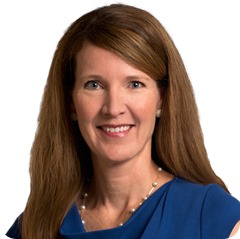An advance directive is a very specific legal document that details the medical treatments you want, and, importantly, don’t want, if you’re unable to communicate with a physician. This may happen as a result of a critical illness that could make you confused or unable to speak.
Some people want every effort made to keep them alive, others want little or no effort made. It all depends on one’s values, culture, religious beliefs and intangibles that may be difficult to articulate. The most important thing to know is that these choices are yours and no one else’s to make.

Often times in a case of serious illness there are decisions to make that are not covered in an advanced directive, such as whether to perform a procedure or use a particular medication.
Creating a durable medical power of attorney appoints a healthcare representative, many times a family member or friend as your decision maker if such an event occurs. This person acts as your “voice” to ensure your wishes, which may be described in detail in the advance directive or extend beyond it, are carried out.
An advance directive becomes enforceable once it’s signed. A durable medical power of attorney only makes decisions when a patient becomes unable to do so.
It’s also important to note that laws vary by state, so seeking out an attorney in your area may be helpful.
A living will is a type of advanced directive.
Why do doctors need to have these conversations with patients and families and how do you think a patient’s advance directive affects the doctor/patient relationship?
As a geriatrician, I’ve had these conversations many times with patients and families. They can be challenging because people often don’t want to think or talk about their death or the death of loved one.
I have also seen relief on the faces of my patients and their families who welcome the chance to come to a common understanding of the conditions and the goals of their loved one.

Understanding a patient’s goals and wishes for their care in life threatening circumstances helps a physician develop the best plan of care.
In a recent survey performed by the John A. Hartford Foundation, the California Health Care Foundation and Cambia Health Foundation of 736 physicians found nearly universal agreement of the importance in having these conversations as a way to honor their patient’s wishes and also to avoid unwanted hospitalizations at the end of life.
Physicians identified several barriers to having these important conversations:
- from concern that the patient may perceive them as having “given up” on them;
- to a lack of training; and
- a lack of formal systems including means to document in the electronic medical record.
Who makes advance directives and how do they help?
You can make an advance directive with the help of your doctor. It starts with a conversation, and then your decisions can be documented using widely available templates.
You can also turn to an attorney who knows the laws in your state to complete the advance directive and durable medical power of attorney.
What are the keys to successful conversations on end-of-life care?
The first step is to push past the initial discomfort of starting the conversation. Knowing your own priorities and sharing with your doctor what you understand about your condition and the areas that need clarification are very helpful in coming to a common understanding.
Sharing your decisions with your family and making sure your primary care physician and attorney have a copy of your advanced directive can make a highly emotional and often confusing time go much smoother.
Are advance directives legally binding?
Advance directives are legally binding documents that take effect when signed and implemented when you become incapacitated and unable to make decisions. Your wishes must be carried out by healthcare providers.
What if you wish to change your decision?
You can always make changes to an advance directive. Life situations may change, calling for a need to update the advance directive. You may change your mind about the type of life-saving care you want, or the healthcare representative may need to be changed.
Marriages, divorces and other life changes are good reasons to take a look at an advance directive and make any appropriate changes.
How does InnovAge support people with advance directives?
We encourage participants in our programs to create an advance directive. We discuss it with them and their caregivers, and talk about the issues associated with advance directives to support the participant.
What are the main myths you’d like to dispel about advance directives?
Physicians do not have to wait until a person is near death to have these discussions.
People often think they are permanently locked in to the details laid out in the advance directive. Understanding that an advance directive can be modified at any time is very important.
How significant a role do you see advance directives playing in the future of end-of-life care?
As of January 2016, the Centers for Medicare and Medicaid Services (CMS) began reimbursing health providers for having these conversations.
Advance directives have always been an important part of healthcare. As more and more Americans become older—10,000 people turn 65 each day—advance directives will increasingly become important and a larger part of end-of-life care. The fact that CMS recognizes the importance of this service will hopefully lead to more people having these conversations with their doctors.
Where can readers find more information?
These organizations have lots of information about advance directives:
About Dr Lisa Price
Lisa Price, M.D. is Chief Medical Officer at Denver-based InnovAge, a provider of health and wellness services for older adults in California, Colorado and New Mexico.
Dr. Price was a private practice geriatrician for 11 years, and then attended on the Acute Care of the Elderly (ACE) service and taught Quality Improvement at the University of Colorado.
Dr. Price is Board Certified in Internal Medicine and Geriatrics, and has expertise in managed care, electronic health records and quality improvement. http://MyInnovAge.org.